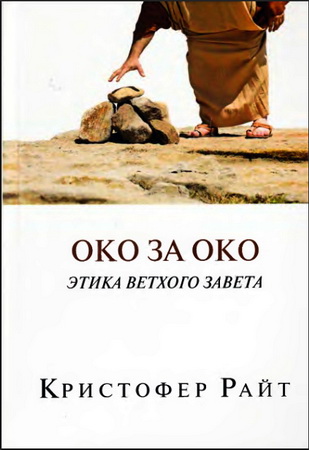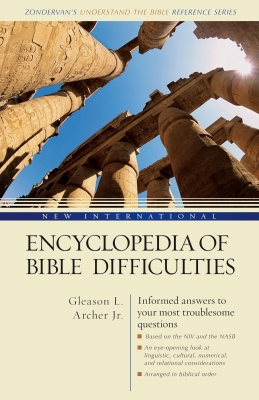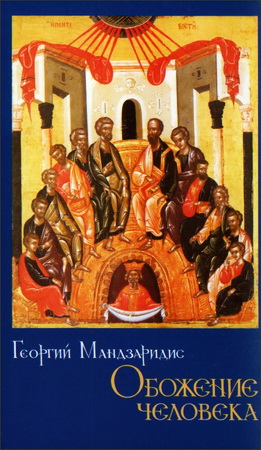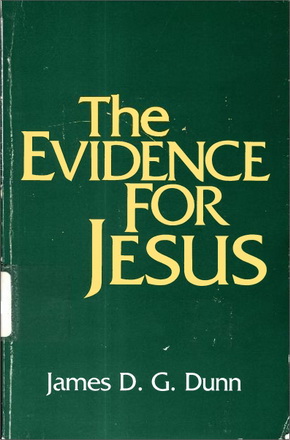
Archer - New International Encyclopedia of Bible Difficulties - модуль BibleQuote
The idea for this book first occurred to me in October 1978, in connection with the Summit Conference of the International Council on Biblical Inerrancy, held in Chicago. At that time it was apparent that a chief objection to inerrancy was that the extant copies of Scripture contain substantial errors, some of which defy even the most ingenious use of textual criticism. In my opinion this charge can be refuted and its falsity exposed by an objective study done in a consistent, evangelical perspective. Nothing less than the full inerrancy of the original manuscripts of Scripture can serve as the basis for the infallibility of the Holy Bible as the true Word of God.
The earnest debate current within Evangelicalism (as well as that within neoorthodoxy and liberalism) has impressed on me the urgent need for this book. Undoubtedly, a panel of scholars would have produced a superior piece of work; but in consideration of the time element, it seemed best to handle this as a one-man work.
For several years I have been engaged in apologetics for Decision magazine, produced by the Billy Graham Evangelistic Association in Minneapolis. Many of the articles that appear in this encyclopedia were previously prepared for Decision, and all such are identified with (D*). The longer discussions, however, have been especially prepared for this book.
The problems and questions dealt with in this volume have been directed to me during the past thirty years of teaching on the graduate seminary level in the field of biblical criticism. As an undergraduate at Harvard, I was fascinated by apologetics and biblical evidences; so I labored to obtain a knowledge of the languages and cultures that have any bearing on biblical scholarship. As a classics major in college, I received training in Latin and Greek, also in French and German. At seminary I majored in Hebrew, Aramaic, and Arabic; and in post-graduate years I became involved in Syriac and Akkadian, to the extent of teaching elective courses in each of these subjects. Earlier, during my final two years of high school, I had acquired a special interest in Middle Kingdom Egyptian studies, which was furthered as I later taught courses in this field. At the Oriental Institute in Chicago, I did specialized study in Eighteenth Dynasty historical records and also studied Coptic and Sumerian. Combined with this work in ancient languages was a full course of training at law school, after which I was admitted to the Massachusetts Bar in 1939. This gave me a thorough grounding in the field of legal evidences. Additionally, I spent three months in Beirut, Lebanon, in specialized study of modern literary Arabic. This was followed by a month in the Holy Land, where I visited most of the important archaeological sites.
This extensive training, combined with the classroom challenge of thousands of seminarians I have been privileged to teach, has especially prepared me for an undertaking of this sort. I candidly believe I have been confronted with just about all the biblical difficulties under discussion in theological circles today—especially those pertaining to the interpretation and defense of Scripture. It may be that some readers of this book will be disappointed to find that some of their personal difficulties have not been covered. If so, please send your problem in written form to the publisher. If there is sufficient response, a supplemental volume may be produced.
I have attempted to present the material in the average layman’s language— that is, all but the technical terminology. Yet at the same time I have occasionally transliterated the Greek, Hebrew, Aramaic, or related languages for the benefit of those acquainted with them. Less frequently the actual characters are used for the benefit of those who are technically trained.
Gleason L. Archer - New International Encyclopedia of Bible Difficulties
Based on the NIV and the NASB
Zondervan, 2001. - 480 p.
ISBN 978-0310241461
How could a kind and loving God take the life of Bathsheba’s first child just because of the sin of its parents (2 Sam. 12:15–23)?
One of the profoundest insights granted to us through Holy Scripture is the true meaning of death. Apart from divine revelation we may think of death as a fearsome menace, a terrible curse, a final stroke of judgment. Insofar as death—that is to say, physical death with its separation of the soul from the body—means the end of all opportunity to find God and to glorify Him with a godly life, there is something very solemn and awesome about death. But God’s Word tells us very plainly that physical death, regardless of how it looks to the human observer, is not the end for any man. He goes right on into the eternal phase of his career, whether in heaven or in hell—whichever he has chosen during his earthly life. But since the Son of God has come and given His trustworthy assurance to all believers, that everyone who lives and believes in Me shall never die” (John 11:26), death has taken on an entirely new meaning. Because it was through death—death as the sinner’s substitute on the cross— that our Savior “conquered death and brought life and immortality to light through the gospel” (2 Tim. 1:10) death has been robbed of its sting and the grave has been deprived of its victory (1 Cor. 15:54–56). “Blessed are the dead who die in the Lord…. that they may rest from their labors” (Rev. 14:13, NASB).
In the case of children who die in infancy, it may well be that they are spared a life of tragedy, heartbreak, and pain by their immediate departure from this world. It is perhaps too simplistic to maintain that all children dying in infancy are thereby guaranteed a place in heaven, as if the saving benefits of Calvary were somehow imputed to them without any response of faith on their own part. Such a doctrine would be a powerful encouragement to parents to kill their babies before they reached the age of accountability, as the only sure way of their getting into heaven. But since infanticide is sternly condemned in Scripture as an abomination before God (Lev. 18:21; Deut. 12:31; 2 Chron. 28:3; Isa. 57:5; Jer. 19:4–7), even when perpetrated in the name of religion, we must conclude that there is some other principle involved in the salvation of infants besides their managing to die in infancy. That is to say, the omniscience of God extends not only to the actual but also to the potential. He foreknows not only whatever will happen but also whatever would happen. In the case of babies who die at birth or before they reach the age of accountability, God knows what their response would be to the proffers of His grace, whether acceptance or rejection, whether faith or unbelief.
It was probably for this reason that David took comfort after he learned that his prayers had been fruitless, and that God had taken his little one “home.” He resigned his baby to the grace of God and said only, “I shall go to him, but he will not return to me” (2 Sam. 12:23, NASB). David had a quiet confidence in the perfection of God’s will, even in a heart-rending situation like this. And, furthermore, he understood why God had seen fit to chasten the guilty couple by taking from them the fruit of their sinful passion. He saw that they needed this rebuke as a reminder that God’s children, even though forgiven, must bear the temporal consequences of their sin and patiently endure them as an important part of their repentance.





Комментарии
Пока нет комментариев. Будьте первым!